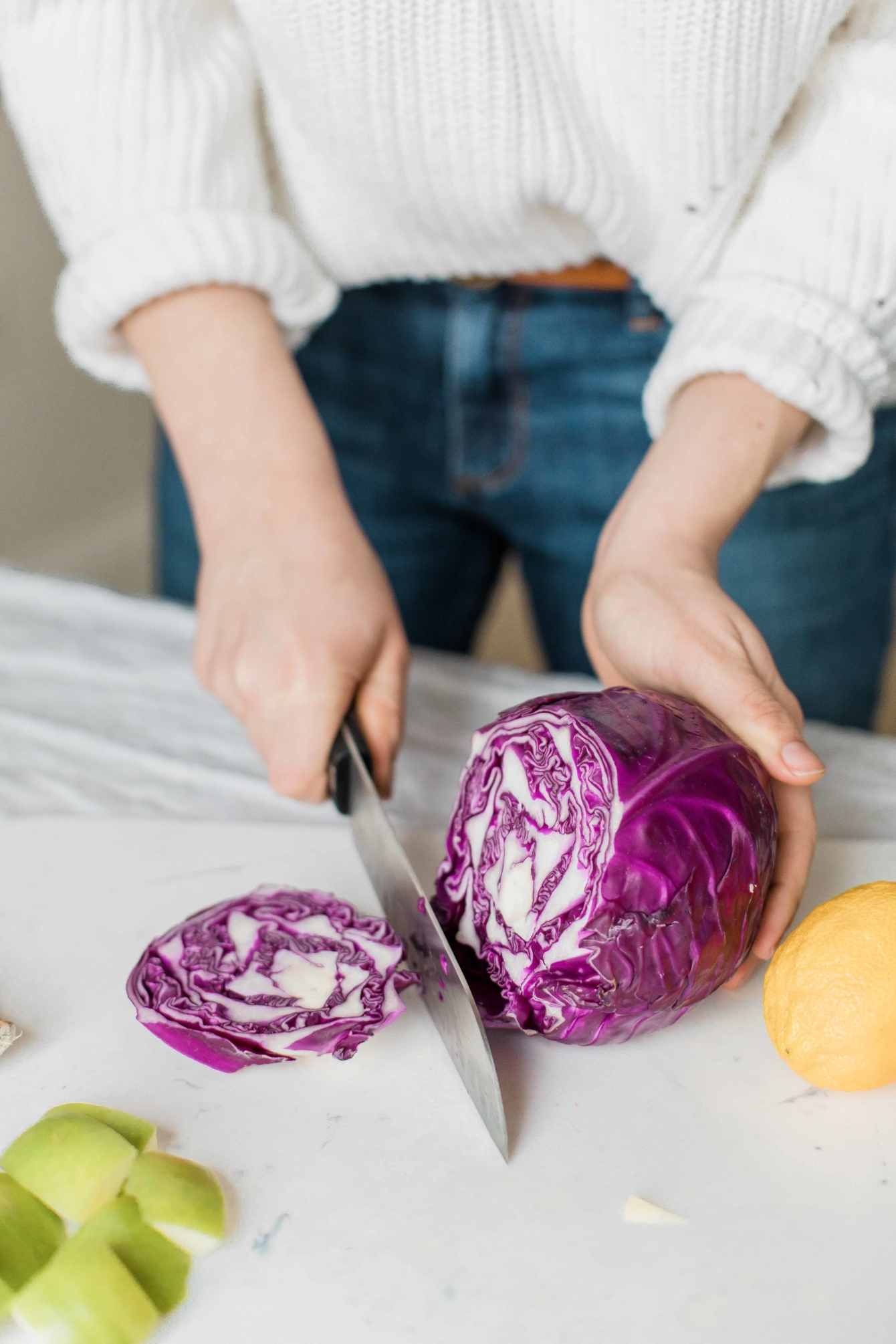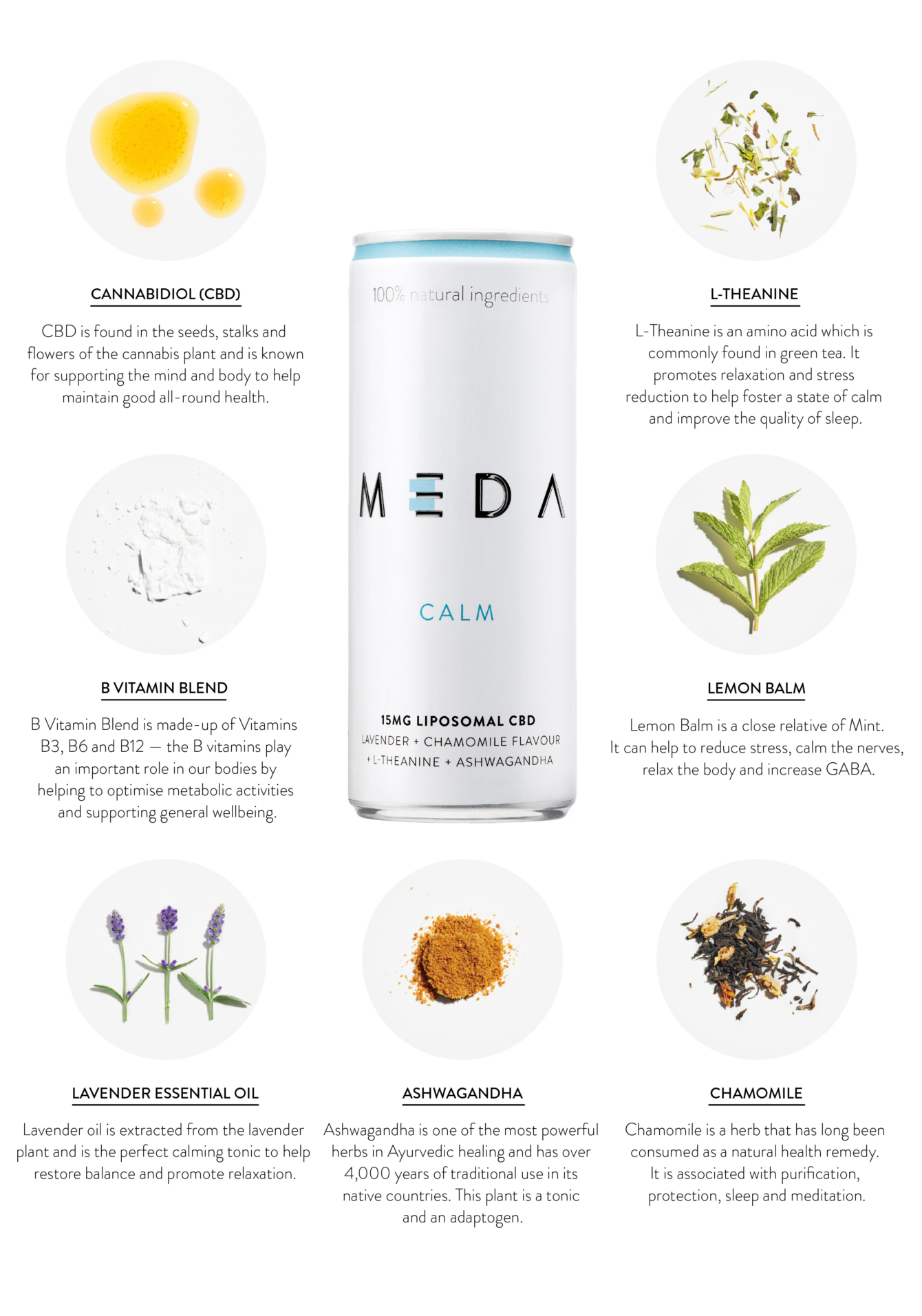
For some, anxiety is a common daily occurrence, and for each person, their triggers and feelings will be entirely personal. With the onset of COVID-19, there has been an existential rise in those worrying about their health, with this potentially leading to health anxiety.
Health anxiety can be split into two separate disorders:
● Somatic symptom disorder- when someone mistakes normal bodily functions for a symptom of a more serious illness. Common symptoms may include tiredness or pain, but the individual’s reaction to the mild symptoms is extreme.
● Illness anxiety disorder- when a person is overly obsessive with a specific disease or illness. Even though they show no physical symptoms, they still confuse normal bodily processes like bloating as a sign of the onset of the illness they are fearing.
The difference between these conditions is very minimal, with some individuals suffering from both conditions. For this reason, health anxiety is a more common term used to discuss a range of symptoms:
● The individual has no symptoms but is still fearful they are unwell
● A doctor reassures someone they don’t have an illness, but the individual does still not feel comfortable or experience reduced anxiety
● Constantly looking for health information online
● Reading about a disease and worrying they then have it
● Health worries affecting work, family life, socializing and hobbies
● Frequently checking the body for signs of illness
WHAT TO DO IF YOU THINK YOU MAY BE SUFFERING FROM HEALTH ANXIETY:
ACKNOWLEDGE HOW YOU FEEL
Being able to name and take note of your emotions and feelings will be an important first step to reducing anxiety. Sometimes, taking a few deep breaths or writing down how you feel can help you to process your feelings and anxiety. You can always come back to these points later to see if they are still triggering you.
AVOID HEALTH NEWS & ‘GOOGLING’ SYMPTOMS
Searching online trying to read about every covid (for example) update will not help to manage the way you are feeling – this will simply add fuel to your anxiety rather than reassure you. The same goes with health forums! What works or was the concern for one person, does not mean that it will be the same for you. Consider limiting how much you look at health online and seek health from trusted sources only.
TAKE CONTROL OF YOUR THOUGHTS
Dramatic, extreme thoughts can be distressing, and something you will need to take control over. Our thoughts are not facts, and being able to take control of that and word things in a more positive way will help in the long run. If you feel like you are in a spiral of thoughts, take yourself away from the situation – go for a walk, call a friend or watch a TV show.
SEEK HELP
If your health anxiety is impacting your quality of life, then it is best to seek specialized help.Methods including CBT can be helpful for those who suffer from anxiety. One of our favourite places to start is MIND charity.

Many of us know that eating a healthy diet is going to be beneficial for our physical health but are you aware that the foods we do and don’t consume can also impact our mental health? Our resident nutritionist Clarissa Lenherr shares her insight on the link between nutrition and mental health and how we can use diet to support our mood.
The Relationship
Think of our bodies like an engine. An engine needs a particular kind of fuel to function optimally. Give it the wrong fuel and it might begin to slow, break-down and act up — give it the right fuel and it will perform like a racehorse! If we supply our bodies with healthy fuel from our diet we are giving our cells energy, providing our brain with resources to support cognitive functions, and delivering the building blocks needed to create neurotransmitters and hormones. All of these things impact our mood. There are several elements that contribute to this premium fuel source for optimal mood including eating balanced plates for energy, nutrient intake/deficiencies, gut health and consumption of stimulants. Let’s delve into each one.
Balance your Blood Sugar
When your blood sugar is on a roller coaster ride all day, your mood is likely to follow suit. Ever wonder why you get irritable and frustrated when you skip a meal? Over consumption of sugars, refined carbohydrates, alcohol and skipping meals contribute to low and high blood sugar. Not only can these fluctuations in blood sugar impact physical health which puts stress on many body systems — they can also affect your emotional well-being. Aim for well balanced meals at every opportunity combining good quality fats, protein, complex carbohydrates and plenty of fruit and veg.
Focus on Nutrient Intake
Did you know that certain nutrients including B vitamins, Vitamin D and Magnesium all play a part in our energy, relaxation, brain function and mood. Aim to include variety and multi-colours of fruit and veg when you possibly can to ensure you are getting in adequate nutrients through your diet. When it comes to Vitamin D, the NHS recommends that between the months of October to April that people living in the UK take a low dose vitamin D supplement of 10mcg to avoid deficiency. This is down to the fact that our optimum source of Vitamin D comes from the sunshine, which is sparse during the summer months.
Support your Gut Health
Our gut has been named our second brain and for good reason! Over 95% of serotonin, one of our neurotransmitters responsible for feelings of happiness, is created in the gut. Read more here on the link between our mood and gut health, and what we can do about it. https://medahuman.com/how-having-a-healthy-gut-can-help-your-mood-the-science/
Be Mindful of Stimulants
Caffeine and alcohol can often be a trigger or potentially exacerbate your mood/mental health concerns. When we consume caffeine, our bodies produce stress hormones in response. These stress hormones can then go on to trigger mood swings and feelings of stress, which is not ideal when you are trying to manage your mood. Alcohol is a known depressant and can effect our mood, energy, immune system and sleep when consumed frequently. If you notice that you feel anxious, irritable, low in mood or jittery when consuming these beverages then aim to reduce and/or eliminate them from your diet. One way to potentially offset some of the side effects of caffeine and alcohol is to pair your drink with CBD which anecdotally can help people feel calmer and less jittery. Check out MEDA Calm and MEDA Focus for a soothing and stimulating beverage replacement.

Heard the saying, everything in moderation? Live your life by the 80:20 rule? Many of us long to be happy, healthy and balanced but what does that really mean? Whilst focusing on a healthy lifestyle by eating well and working out is great for your body, a balanced life goes way beyond physical health. Balanced living is investing in self compassion, stress reduction and your emotional and mental health.
Balanced | Eating
While eating your greens and hitting your protein requirements is fantastic for your health, a balanced approach to eating does not mean joining the salad every day brigade. With the rise of the clean eating movement, and the “treats” mentality, healthy eating can swing way beyond the balance. And the same goes with a diet that has a high reliance on sugars, processed foods and is lacking in diversity.
The 80:20 rule can be a useful tool in trying to achieve balanced eating. Aiming for 80% of your dietary intake to be filled with nutritious and delicious food, whilst 20% of the time, you can focus on eating whatever your taste buds and soul tells you it wants. Being able to enjoy those 20% moments, rather than feeling guilty, is a significant sign that you have a balanced approach to eating.
Balanced | Drinking
Alcohol can be both a poison and a tonic, and a balanced approach to alcohol should aim to sit at a point where the pros of alcohol outweigh the cons. Moderate alcohol consumption can provide some health benefits. For example, red wine has been linked to lower cholesterol levels and has been shown in studies to support the health of our microbiome. However, heavy drinking can significantly affect our health, by potentially damaging the liver, effecting our insulin levels, mental health and cardiovascular health.
The NHS suggests no more than 14 units of alcohol per week and it is suggested that we avoid binge drinking whenever possible. To help keep you within this balanced window, try out MEDA’s NO-LO range here https://medahuman.com/no-lo/
Balanced | Movement
Do you exercise for the numbers and burn? Feel the nagging need that you must exercise, even when you don’t want to? If you answered yes, you might have an imbalanced approach to exercise.
Exercise has the ability to boost your mood, make you smile, provide you with energy. The last thing you want for a balanced approach to exercise is to feel that dreaded weight that you have to hit the gym, pelt the tarmac or sad face your way through a boot camp.
And healthy exercise doesn’t need to be working out every single day, instead a balanced approach to movement and to support consistency with your routine, exercise should be enjoyable and satisfying.
The NHS suggests that we should be aiming for 75 minutes of high intensity exercise, or 150 minutes of moderate exercise. To achieve balance here, find what you love. Whether it is running and the clarity and runner’s high that makes you feel good, dancing to your favourite soundtracks or deep breathing your way through a vinyasa.
Balanced | Self-Care
It can be easy to normalise stress, burn the candle at both ends, put yourself at the bottom of the priority list. But taking time to invest in self-care and indulge in creative outlets can boost your mood and help you manage stress more effectively. One of my favourite strategies it to pop a meeting in your diary with yourself – turn off your phone and do something for you, whether it’s having a bath, meditating, booking a massage or whipping up a delicious meal.For my favourite self-care tips for the mind read here.https://medahuman.com/6-self-care-practices-for-the-mind/
References:https://www.gastrojournal.org/article/S0016-5085(19)41244-4/fulltexthttps://pubs.niaaa.nih.gov/publications/arh23-1/15-24.pdfhttps://www.thelancet.com/journals/lancet/article/PIIS0140-6736(15)00235-4/fulltext

Whether you are a one tipple girl or a shot after shot lady, are there any tips and tricks that we consider when it comes to drinking? We turned to our in-house nutritionist Clarissa Lenherr, to check in on her thoughts on how to imbibe the healthy way.
Food First – eating food before or with your drink will help slow the rate at which alcohol is absorbed into the bloodstream, therefore reducing or slowing down the effects of the alcohol. Aim to have a meal or snack that contains protein and fat with some carbohydrates (not too many though as there are usually plenty in the drinks). Nuts, olives, yogurt, and anything with avocado are all good options. Margaritas with a side of guac any one?
Include a ‘spacer’ between drinks – a ‘spacer’ is a non-alcoholic beverage that you consume between drinks that do contain alcohol. Ideally this would be water, to help with the dehydrating effects of alcohol. The idea is that you stay hydrated and you slow yourself down so that you don’t become intoxicated and thus have to deal with the consequences of such. Nobody likes a hangover.
Add a spritz – although it might not come up high on your list of favourites, there is a reason that vodka soda and lime is a frequent choice. Adding soda water over fizzy drinks/juices reduces the added sugars when drinking and can help keep you hydrated. If you can’t wrap your head around the lack of flavour, order your cocktail of choice, ask for no added sugar syrups, and top it up with fizzy water to keep it lasting longer.
Consider pairing your cocktail with a CBD mixer – the interactions between alcohol and CBD have not yet been thoroughly researched, however, since alcohol and CBD may both contribute to feelings of relaxation, these effects could be cumulative and therefore give you a stronger and longer-lasting calming effect. But don’t forget, this is entirely dose dependent and as we know, the more alcohol you drink, the stronger effects, and the same goes with CBD dosing.
What is interesting is that multiple studies have shown that CBD may have the potential to protect against alcohol generated oxidative stress in the liver and neurodegeneration associated with alcohol.
MEDA’s range of functional drinks are infused with 15mg of liposomal CBD, and when mixed into a cocktail or with a spirit of choice, can offer drinkers a delicious dose of relaxation.
* The team at MEDA and Clarissa Lenherr Nutrition are not doctors and we do not provide medical advice. The information and content of this article is provided only for informational purposes. It is not meant in any way as a substitute for the professional advice provided by your physician or any other healthcare professional.

We’ve heard it all before – alcohol isn’t great for us. High consumption, particularly binge drinking, has been linked to everything from bowel cancer and diabetes to fertility issues and difficulties with weight management.
That doesn’t mean that booze should be demonised, nor does it mean we should all give up for good. Alcohol can play a role in a balanced lifestyle and for some is an integral part of relaxing and socialising.
Our in-house Nutritionist, Clarissa Lenherr, shares her top tips on how to drink smarter and avoid unhappy hour!
Swap out old habits
Always head straight for the drinks when you enter a social gathering? Rely on alcohol to get the conversation flowing or for a hit of confidence? If this sounds like you, you may want to consider a implementing a habit change.
Try swapping the alcoholic drink for an alcohol-free option, head into a social gathering with a friend by your side; or invest time into working on your social confidence. I really like implementing positive affirmations — they remind our brains of what’s good, true, and helpful.
Choose a lower alcohol option
With the rise of NO-LO drinking, some of our favourite classics have been re-vamped with less calories, sugar and alcohol, enabling you to enjoy the same beverage without the unhealthy side effects. In turn, these lower sugar and alcohol options can leave you feeling less dehydrated and groggy. And potentially help you avoid a nasty hangover. Check out MEDA’s Espresso Medatini which has 50% less sugar and calories than your standard espresso martini.
Give yourself an excuse
If you know you are susceptible to that ‘just one more’ pressure, come prepared with an excuse. If you know (or pretend) you have a workout the following morning, an important deadline or a meeting (zoom or not!), then you have a great excuse to help you circumnavigate that ‘one for the road’ trajectory.
Avoid sugar filled beverages
While reaching for an alcohol-free option can be a great way to avoid alcohol consumption — many mocktails, mixers and fizzy drinks are packed with sugars or artificial sweeteners. And most tonics have more sugar than colas! Soda and lime is a good option however it is not the most ‘delicious’ drink on the block! Explore MEDA’s range of no-alcohol beverages, flavoured with natural herbs and a touch of the highest quality grade A maple syrup.
Drink something you enjoy
Instead of choosing a drink for the sake of it, find the drink that you genuinely like. Drink mindfully by enjoying the smell, flavour and feeling you get from drinking. This slower way of drinking gives us a chance to appreciate alcohol and drink smarter.
Discover:
https://medahuman.com/no-lo/https://medahuman.com/product/espresso-medatini/

With mental health awareness week upon us, now more than ever we focus our attention to our mood and anxiety levels. In this current climate, we may find our anxiety levels triggered, our stress levels exacerbated and our moods swinging left right and centre.
Effective management of our anxiety involves a factor that is often forgotten – our diet! If you haven’t tried fine-tuning what you eat then you may be missing a significant opportunity to boost your mood.
Clarissa Lenherr, Registered Nutritionist, shares her top tips on managing your mood and anxiety levels through good nutrition.
Look after your gut health
Did you know that 90% of Serotonin, the hormone that is responsible for feelings of wellbeing and happiness, is created in the digestive system? Pretty impressive right! Alongside that, emerging evidence is showing that our commensal bacteria in the gut can create GABA (a neurotransmitter responsible for feelings of calm), and plays a role in reducing anxiety.
To look after your digestive system and bacterial ecosystem that live within it, you want to ensure you are getting in 30g of fibre every day, chewing your food thoroughly and eating lots of prebiotic and probiotic foods. More info in Clarissa’s recent post here https://medahuman.com/daily-dose
Balance your blood sugar
Ever heard of the blood sugar rollercoaster and wondered what this means to you? Well, when our blood sugar (glucose in the blood that gives us energy) is peaking and dropping all day long, our energy levels fluctuate and our mood can often follow suit. For example, ever felt your anxiety levels are more pronounced when you are tired? Felt your mood is lifted after eating and drops an hour after? That’s all thanks to your blood sugar. To avoid yo-yo energy and mood levels all day, we want to eat well balanced meals at every opportunity, to give us a slow, consistent release of energy.
Try and aim for this breakdown of macros on your plate:
- ¼ of your plate should be protein – tofu, beans, red meat, poultry, eggs, fish or shellfish
- ¼ of your plate complex carbohydrates which are full of fibre – brown rice, quinoa, oats, starchy veg
- ½ your plate veggies galore!
- 1 tbsp of good fats such as olive oil, avocado, nuts and seeds
Reduce/avoid caffeine
When we consume caffeinated foods or drinks, it prompts us to secrete our stress hormone cortisol. This is fine in moderation, but too much cortisol can trigger anxiety, mood swings, irritability and even headaches, nausea and jitteriness for some.
The maximum recommended intake of caffeine is 400mg which is about eight cups of lightly stewed green/black tea or four espresso shots. And if you notice that caffeine triggers your anxiety, try to reduce your consumption even further. But don’t go cold turkey! Taper off over time, as cutting out caffeine abruptly can trigger headaches, mood swings and malaise for some people.
Try swapping with non-caffeinated alternatives such as chicory root coffee, naturally non-caffeinated herbal teas such as peppermint or turmeric lattes.
Consider green tea
Adaptogenic herbs may be your go-to. Rhodiola, Ashwagandha, Holy Basil and Reishi mushrooms have all been shown to help support your body when it is stressed and this in turn can help reduce the onset of anxiety or mood changes. Check out MEDA’S CALM blend which contains Chamomile, CBD and Ashwagandha, all of which may help to manage your anxiety levels and promote relaxation. Read more about adaptogens and their benefits here https://medahuman.com/ashwagandha
Discover MEDA calm

Feeling stressed, anxious and overwhelmed? These times of uncertainty can, for many of us, trigger changes in our mood. While we can’t alter what is happening or take stresses away, we can focus on self-care, particular for our minds.
Clarissa Lenherr, our in-house nutritionist shares some of her favourite ways you can show your mind some tender loving care.
Meditate
You’ve heard it time and time again, but meditation really does work. Anchoring your mind can improve your sense of wellbeing and improve your sleep. Take some you time every day: switch off the background noise and put on some headphones. Immerse yourself in some free guided meditations with apps such as Headspace, Simple Habit or Stop, Breathe and Think. Go on a walk and nourish your calm by staying in the moment and by breathing deeply.
Stick to a daily routine
It’s easy to feel a loss of control when you’re in lockdown. Keeping a daily routine will help you navigate through the seemingly endless groundhog days. Try to modify your schedule on weekdays and weekends so that you break up the week. Set your alarm clock, make your bed, brush your teeth, and get dressed! Plan daily mealtimes and downtimes. Fit in some daily exercise, and try to get out of the house once a day.
Journal
Take yourself back to one of your favourite childhood habits. Have you ever written a secret diary or notes to an invisible friend? Revisit diary writing or journaling and reap the mind settling rewards. Whether it is writing a daily note to yourself, penning a mini story, jotting down daily gratitudes or keeping note of your dreams, writing can be a great creative outlet and a way to place your thoughts somewhere other than your mind!
Listen to music
Music releases dopamine, the feel-good chemical in the brain. It doesn’t matter if you’re a lover of pop, rock, jazz or classical – just get your tunes going, have a sing-a-long if you fancy, and enjoy the noteworthy moment.
Dream
Getting cabin fever and dreaming of pastures new outside your four walls? Make lists of some of the things you’ll want to achieve as soon as lockdown is lifted. Start planning a holiday for later this year, decide on which family and friends you’ll visit first, get your hair appointment on the checklist as well as some autumn theatre and a night out at your favourite restaurant.
Contemplate your navel
Don’t beat yourself up because you’re not learning a new language, reading anthologies, powering through box sets or running a marathon. It is ok to give your chattering brain a break from all the traffic. Take a deep breath, put your feet up, and just be!

The theme of this year’s World Mental Health Awareness Week, hosted by the Mental Health Foundation (of which I have been a proud ambassador for the past 6 years), is Kindness. This theme was chosen as a specific response to the current pandemic in the hope that by encouraging and celebrating kindness, we can collectively help to improve peoples’ mental health during this time.
Mark Rowland, Chief Executive of the Mental Health Foundation, said: “Now more than ever, we need to re-discover kindness in our daily lives. We want to use Mental Health Awareness Week to celebrate the thousands of acts of kindness that are so important to our mental health. And we want to start a discussion on the kind of society we want to shape as we emerge from this pandemic. One thing we have seen all over the world is that kindness is prevailing in uncertain times, helping people to connect and communities to cope with the impact of the coronavirus pandemic.”
Kindness is simply defined as the quality of being friendly, compassionate or generous. It is one of the most powerful and beautiful gifts we have within us and it has the most incredible effect on the mental and emotional wellbeing of both the giver and the receiver. When I speak to people who are feeling lost or low, or who are just having a rubbish day, I’ll often say to them “just go and do something kind for someone else without expectation of anything in return.” As my mum always told me growing up, ‘it’s nice to be nice’. There is no greater joy than making someone smile or doing something kind for someone else. It gives you a sense of purpose at times when we need it and it gives us this innately good feeling within us. I genuinely believe that the majority of us are born kind and that when we act on it, and show kindness to others, we are honouring our true nature. And of course, as any of you reading this will know, when someone does something kind for us, especially at a time when we are not feeling our best, we feel seen, valued, appreciated and loved. All of which gives us an increased sense of wellbeing.
Kindness gives us an opportunity to connect to one another, whether that is to someone you know and love, or to a stranger. Kindness literally connects humanity and I actively take time every day to observe all the acts of kindness people are offering each other across the globe during this time and it genuinely fills my heart with joy to witness it.
Here are some simple acts of kindness that you can offer someone you love or a stranger that cost nothing at all:
- Offer a safe space of non-judgment
I don’t think there is anything kinder than allowing someone the space to be completely themselves. There is something liberating about being around someone and being able to just be you, without fear of judgement. Offer that space to those you love by accepting them as they are, not who you want them to be, and giving them the opportunity to express themselves without criticism.
- Check in
Never underestimate the power of the simple question, “how are you feeling today?” Make an effort to check in with your friends and family, ask how they are, and actively listen to them. During uncertain times, people can feel overwhelmed, fearful and alone. Hearing from a friend can be just the thing to turn someone’s day around!
- Support their fundraiser
So many people are making incredible efforts to raise money for various charities. Rather than scrolling past, take a moment to donate to their fundraiser if you can, or simply send them a message of encouragement and appreciation for what they are doing.
- Give someone a compliment
How often do you have a nice thought about someone but not take the time to tell them? Next time you have a thought that is complimentary, say it out loud. It takes no effort at all, but can cheer someone up when they might really need it. Boosting each others’ self esteem is a beautiful thing to do and I always encourage people to do it more.
- Express Gratitude
Always take the time to say thank you to people for whatever they have done for you, no matter how big or small. Cultivating gratitude into every area of our life is so important for our overall wellbeing, plus it makes those around us feel valued, appreciated and respected.
- Smile
Have you ever exchanged a smile with a stranger and noticed that you feel instantly uplifted? It gives you a feeling of connection that is so important especially during this time of social distancing. Plus, smiling has been proven to improve our mood, release endorphins and reduce stress.
Kindness is contagious, so sprinkle it everywhere! Let’s make the world a better place together, Love Roxie xx

Picture the scene. You’re sitting at our desk anticipating your tasks for the day, when suddenly you feel frozen by fear and dread. You’ve got so much on your plate that you just don’t know where to start. So instead you sit, anxiety building inside you, unable to do the simplest task. It’s called overwhelm and it is one of the key symptoms of stress.
It’s normal to feel overwhelmed from time to time. After all, if we sign up to society’s model of success we have to be all singing, all dancing super humans. However, when overwhelm takes over your life, it’s time to take stock and make changes. That’s why we want to share six natural ways to banish overwhelm from your life.
What is Overwhelm?
A little bit of stress in our lives keeps us striving for goals and moving beyond our comfort zone. However, our desire to fit in and get approval from others means that we often lose the capacity to say no when more responsibility gets thrown our way. After all, if you want to make it to the top, you’ve got to make some sacrifices, right? But one sacrifice we shouldn’t make is our physical and mental health.
Feeling overwhelmed, be it in the workplace, at home, or both is a sure sign we are under too much stress. It is often accompanied by feelings of being unable to cope, racing thoughts, brain fog, tightness in the chest, mood swings, and sweaty palms.
When stress turns chronic, it can lead to health problems such as heart disease, depression and anxiety, autoimmune conditions, and even cancer. The bottom line is in order to prevent overwhelm turning into a stress-related illness, it’s time to take proactive steps now.
1. Be present
Most thoughts related to stress, anxiety and overwhelm are rooted in an unknown, scary future, where a catastrophic outcome is almost certain.
‘If I don’t deliver the project on time, my boss is going to fire me for sure.’
‘What if they notice in the meeting I haven’t done any preparation, everyone is going to laugh at me.’
‘If I miss my daughter’s school play because of work, I’m a bad mother. But if I go, my boss will think I’m not taking the work seriously.’
You get the picture. Catastrophising about the future is a sure fire way to send your stress and anxiety levels shooting through the roof. So, in those moments of feeling overwhelmed, bring your attention back to the present moment.
How do we do this?
Remembering to breathe is a good place to start. It’s not that you’re no longer breathing, but probably your breath has become quickened and shallow. Gradually slowing down your breath moves your body from the ‘fight or flight’ sympathetic nervous system, into the relaxation-promoting parasympathetic nervous system.
Breathing also has the benefit of bringing you into your body. Feeling overwhelmed for most people is accompanied by circular, spinning thoughts. Being aware of our body, either through the breath or just feeling your feet on the ground or bottom on your chair, can short circuit the obsessive thinking.
Why not take two minutes away from your work and just breathe, feeling the breath entering and leaving the body? Your stress levels will reduce and you’ll feel more able to get on with the work at hand.
2. Learn to meditate
Conscious breathing and meditation are closely connected. By focussing on our breath we are rooted in what’s happening in the present moment. This focus also has other benefits for reducing feelings of overwhelm. A corollary of stress is the inability to concentrate, instead having scattered thoughts. Through meditation, we learn to train the mind to focus on one object. It could be our breath, a mantra, a candle flame, or even some knitting.
Mindfulness, a technique cultivating present moment awareness, is perhaps the most widely practiced form of meditation. In fact, there is even a mindfulness course especially designed to reduce stress. But whatever meditation technique you choose, the key is to be consistent, ideally meditating at least once a day. Try not to see your daily meditation as yet another task to get stressed about. By spending just 20 minutes in the morning before you go to work, you’ll see how normally stressful tasks are much easier to manage.
3. Accept you’re not perfect
There we said it. That image of perfection you’ve been striving for all your life is just an illusion. After all, who came up with this ideal of perfection in the first place? The bottom line is that you’ve been holding yourself up against some incredibly high bar for so long, you’ve lost track of who you are and what really matters.
Accepting our vulnerabilities and human weakness gives us the freedom to get it wrong sometimes. And when we do, we see that the world keeps spinning on its axis and the rejection we fear so much, probably doesn’t happen.
4. Ask for help
Accepting we’re not perfect also frees us from the shame of asking for help. From an early age, we’re taught self sufficiency and independence are important keys to success. But no man (or woman) is an island, and sometimes it’s OK to reach out for help.
For some reason, we’re gripped with a sense of shame at the thought that others might know we’re not coping. But in most cases, those around us are just waiting for us to reach out. The most likely outcome is that we will feel less alone in our misery and almost certainly, offers of help from those around us will lessen our burden.
5. Learn to say no
This is a tough one. In the age of positivity, we’re programmed to think that saying no when offered new responsibilities is diametrically opposed to success. However, if we are to have a long and happy working career, having firm boundaries are vitally important.
It’s long been said: “if you want something done, ask a busy person.” But ultimately, our bosses would rather give the work to someone else than have an employee signed off with a stress-related illness.
6. Look after your Endocannabinoid System
Overwhelm is a sign that our nervous system is out of whack. But did you know we have a master regulating system that keeps all our biological functions running smoothly, including our nervous system?
It’s called the Endocannabinoid System (ECS) and comprises a vast network for special receptor sites in our brains and central nervous system, immune system, and major organs. The ECS acts like a dimmer switch, bringing our bodies back into balance or homeostasis.
Sometimes though, our ECS needs some additional support. Step in CBD, the naturally occurring compound found in hemp. CBD has been found to strengthen Endocannabinoid tone, and many people find taking CBD products on a daily basis takes the edge off their stress levels. At MEDA we’re massive fans of CBD, as well as the other super-nutritional ingredients in our wellness drinks. But as Albert Einstein reportedly said: “Insanity is doing the same thing over and over and expecting different results.” We believe CBD helps give the mental space to start making changes, but without addressing imbalance in all aspects of our life, overwhelm will continue to be our unwelcome companion.